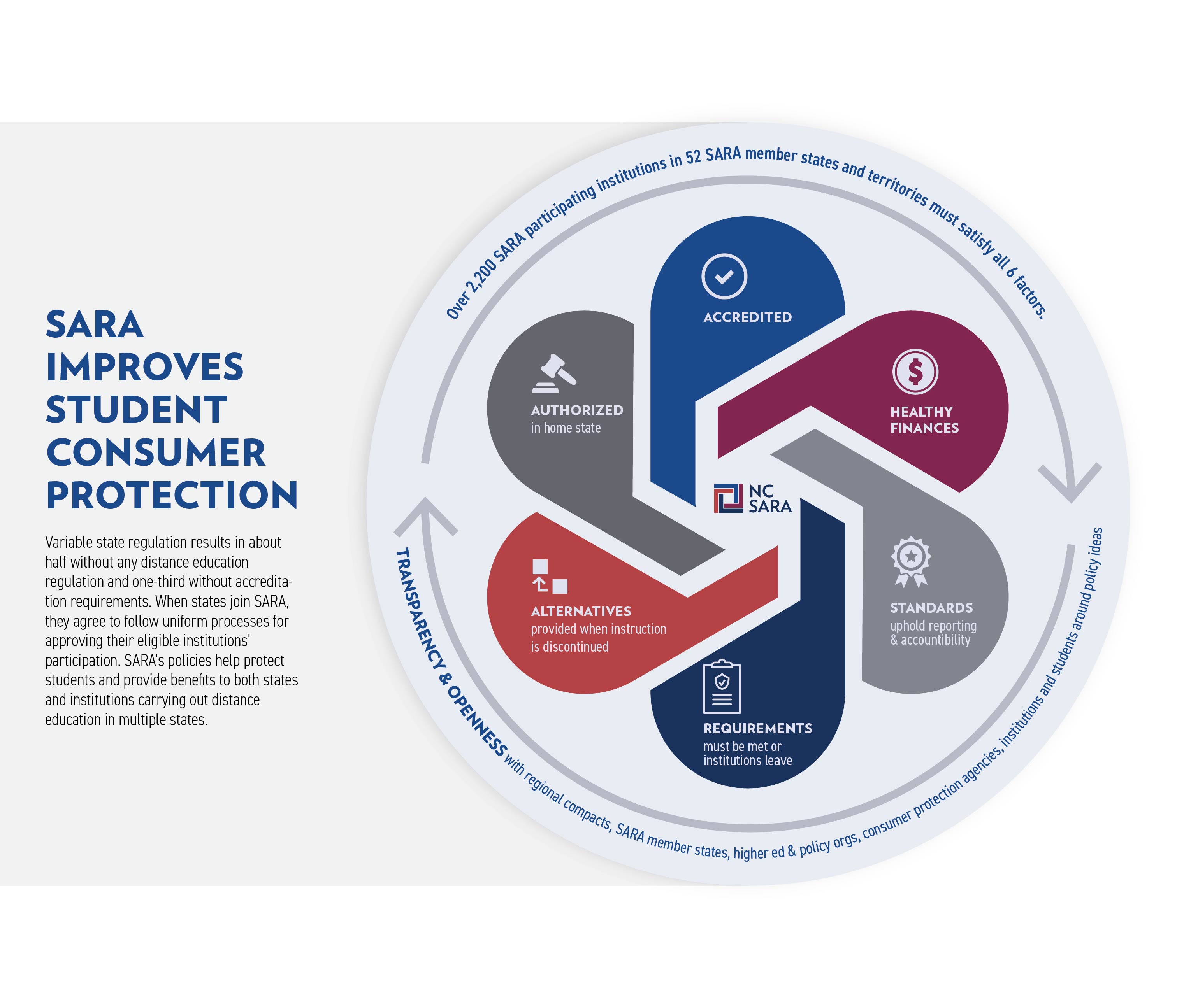The National Council for State Authorization Reciprocity Agreements (NC-SARA) was established to help expand students’ access to educational opportunities and ensure more efficient, consistent, and effective regulation of distance education programs.
Two critical components of our mission are:
- to assure students are well-served in a rapidly-changing education landscape, and
- to increase the quality and value of higher education credentials earned through distance education programs.
To help achieve that mission, SARA-participating institutions must meet certain requirements, many of which are focused on ensuring appropriate consumer protections for students.
Key SARA Student Consumer Protections include:
- All SARA institutions must be accredited.
- SARA institutions must be physically located within the U.S. and have U.S. ownership.
- SARA institutions must demonstrate healthy finances.
- SARA institutions are accountable for third-party providers.
- SARA institutions must comply with SARA policy.
- SARA institutions must uphold stringent reporting and accountability requirements.
- SARA institutions are required to satisfy all federal requirements for professional licensure disclosures.
- SARA institutions must meet obligations to students.
- Student complaints are taken seriously.
More information is available about each of these protections.
Looking Forward: Maintaining NC-SARA's Commitment to Students
We always welcome feedback for how we can continue to enhance our policies and processes to better serve institutions, states, and – most importantly – students nationwide. To share your thoughts, email: info@nc-sara.org.

